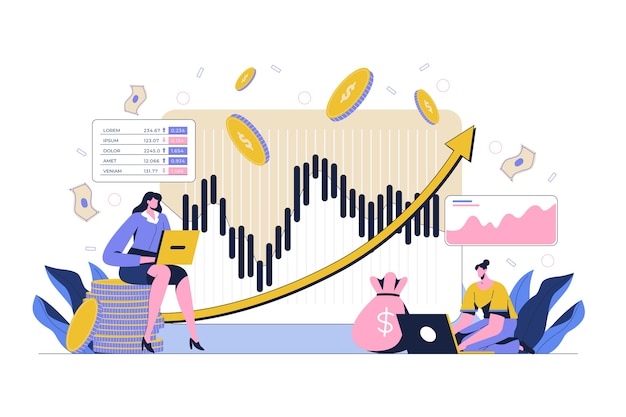I often hear people argue that the stock market isn’t the same as the economy, and I get where they’re coming from. After all, not everyone has a stake in the stock market, so not everyone directly benefits from its ups and downs. But as I’ve grown older, I’ve come to see that the stock market and the economy are more intertwined than we might think.
Let’s start with the fact that around 61% of Americans own stocks. So, while not everyone is directly affected by the stock market, a significant portion of the population is. And the impact of the stock market doesn’t stop with those who own stocks.
The stock market influences the economy because the wealth it generates often gets turned into spending, which makes up a large part of the GDP. Stocks themselves don’t provide any direct utility, so the only way to benefit from them is to sell them and buy something you want or need. This means that when the stock market goes up, more money is spent on all aspects of the economy, affecting the prices of goods and services for everyone, whether they invest in the stock market or not.
For example, consider the case of Apple. When Apple announced a bunch of new AI features in 2024, its stock price surged, adding $215 billion to its market cap. This made the tens of thousands of Apple employees who own stock feel richer, and they’re likely to spend more as a result. This increased demand for goods and services drives up prices for everyone.
The good news is that anyone can invest in companies like Apple, and doing so can provide a hedge against economic uncertainties. For instance, I’m building a portfolio of AI companies to hedge against a potentially difficult job market for my children.
The stock market also influences the real estate market. I have a tenant who works at Apple and his income, including his stock grants, allows him to easily absorb an 8% rental increase. This extra income is significant for me and gives me more confidence to take more investment risks and spend more money.
The stock market also affects the future of private companies. A strong stock market encourages public companies to acquire more private companies, putting cash into the hands of private company employees and injecting money into the economy.
Even the cost of university tuition is influenced by the stock market. Universities charge high tuition fees because there are enough families willing to pay these prices. Parents who have invested in their children’s 529 plans since birth will likely have more money for college tuition than those who haven’t, giving their kids more college options.
In conclusion, the stock market is a significant part of the economy. It influences spending, the real estate market, the future of private companies, and even the cost of university tuition. So, while it’s true that not everyone directly benefits from the stock market, its impact is felt by everyone in one way or another.
